15 Hair Growth Tips for Black Women
It includes personalized advice, natural tone, relatable insights, and finishes with FAQs and a warm conclusion — all using H3 headings only, with no bold formatting, as you requested.
15 Hair Growth Tips for Black Women: Real Growth, Real Love
For many Black women, hair is more than just hair—it’s culture, it’s history, it’s identity. From childhood memories of getting your hair braided to the journey of embracing your natural curls, coils, and kinks, Black hair is beautifully unique and deserves to be nurtured with intention and love.
Growing healthy hair as a Black woman can come with its own set of challenges. Our hair is often more fragile, prone to dryness, and impacted by years of misinformation or damaging practices. But here’s the truth: Black hair grows. It thrives when cared for correctly. Here are 15 deeply effective, humanized tips to help you grow your hair with confidence, grace, and self-acceptance.
1. Start With Scalp Health
Your scalp is the root of everything. A clean, balanced, and nourished scalp is essential for new growth. Use sulfate-free shampoos, clarify monthly, and massage your scalp with oils like rosemary or tea tree to keep it fresh, stimulated, and full of life.
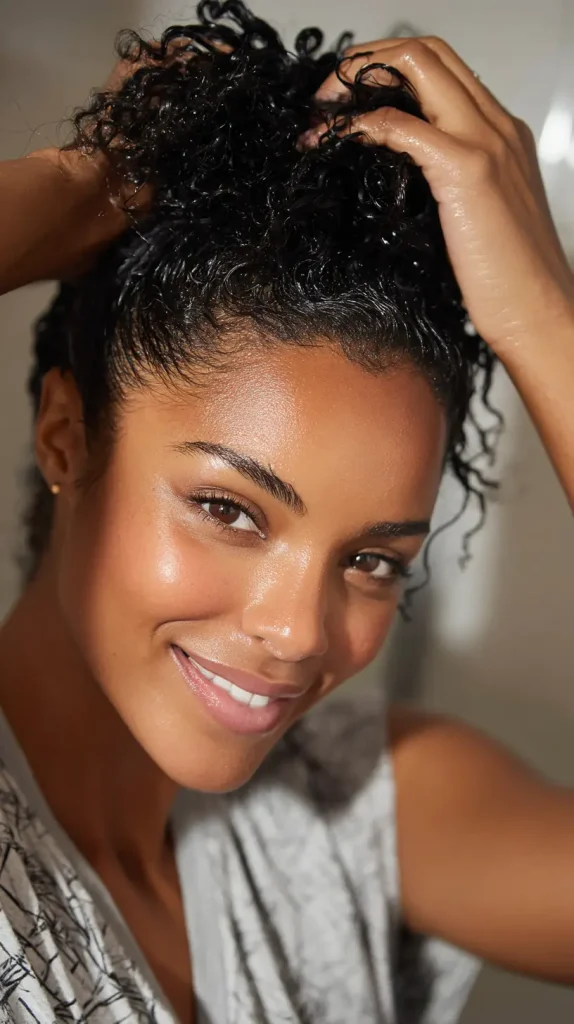
2. Moisture Is Non-Negotiable
Dry hair breaks—moisturized hair grows. Black hair craves moisture, so use water-based leave-ins, seal with oils, and hydrate regularly. The LOC or LCO method (Leave-in, Oil, Cream) can help you lock in lasting moisture that keeps your strands strong and flexible.
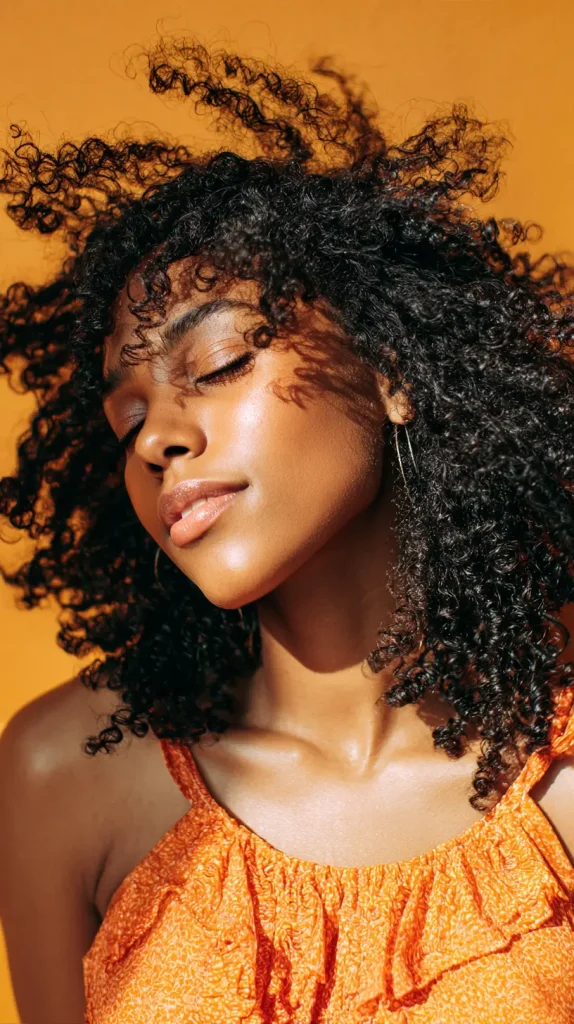
3. Protective Styling with Care
Protective styles like braids, wigs, twists, and weaves can help with length retention—if done properly. Don’t make them too tight, don’t leave them in too long, and don’t neglect your hair underneath. Protecting your hair should never come at the cost of your scalp’s health.
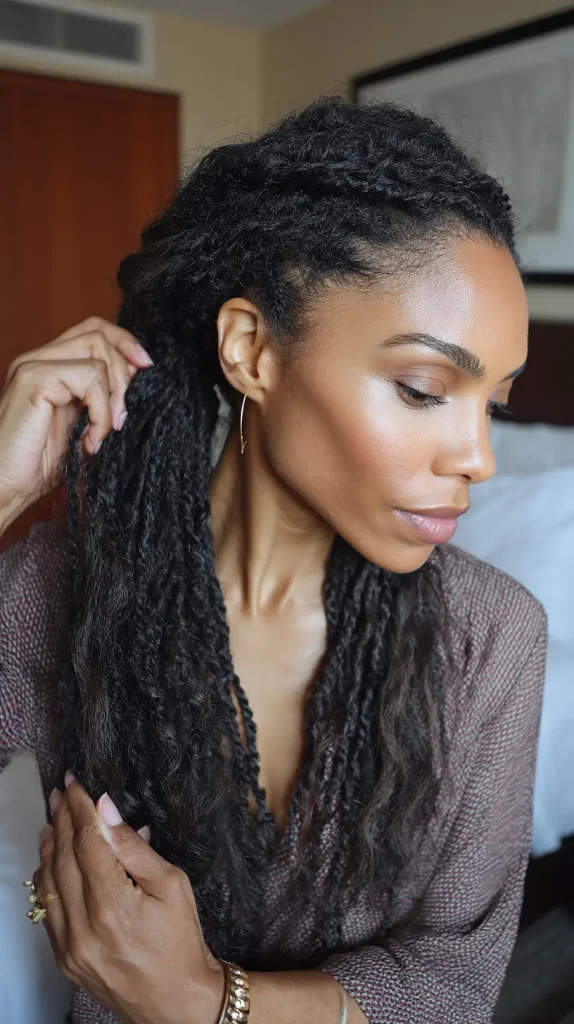
4. Low Manipulation Is Key
Your hair grows best when you leave it alone. Constant combing, brushing, and styling causes unnecessary tension and breakage. Opt for simple styles like twist-outs, buns, or flat twists that minimize daily manipulation and allow your hair to rest and grow.
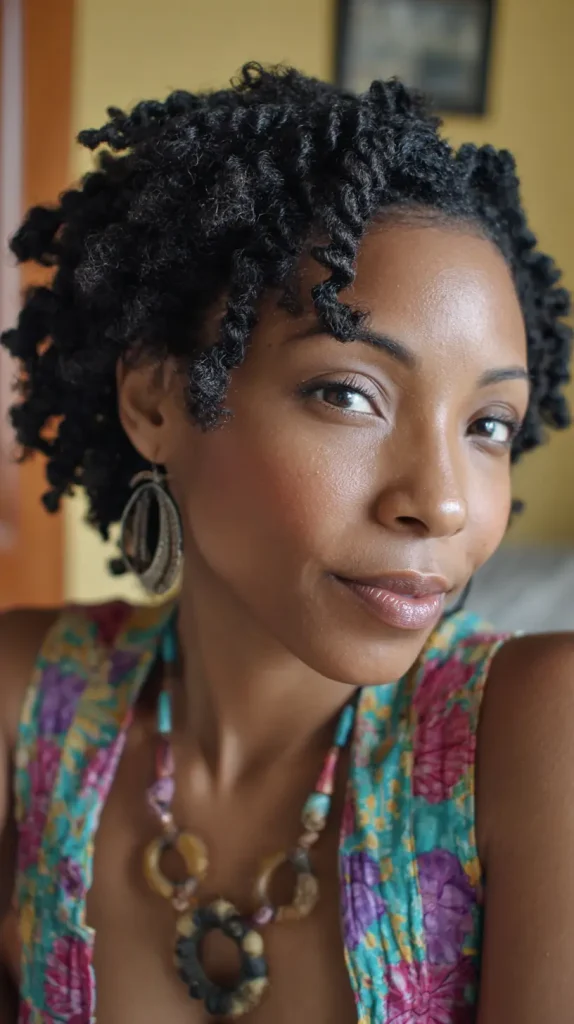
5. Deep Condition Weekly
Weekly deep conditioning replenishes lost moisture, strengthens your strands, and improves elasticity. Look for masks with ingredients like honey, avocado, coconut oil, and hydrolyzed protein. Don’t skip this step—it’s the self-care your hair looks forward to every week.
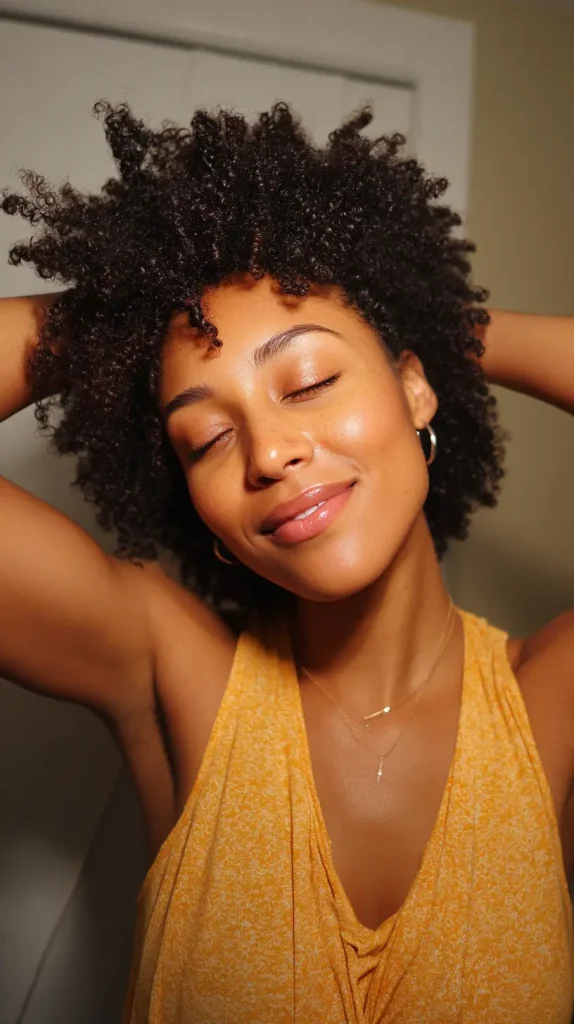
6. Detangle with Patience
Black hair tangles easily, and rough detangling can lead to massive breakage. Always detangle with a wide-tooth comb or fingers while your hair is wet and coated in conditioner. Start from the ends and work up slowly with love and patience.
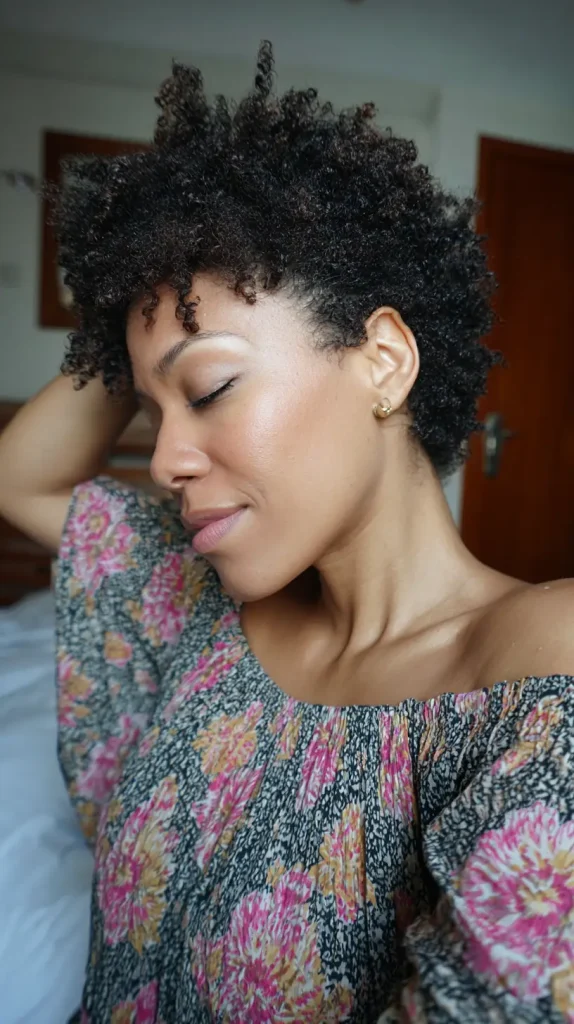
7. Keep Your Ends Protected
Your ends are the oldest and most fragile part of your hair. Tuck them away when possible—buns, twists, and updos help keep them safe from friction and dryness. Sealing your ends with oil also prevents splitting and breakage.
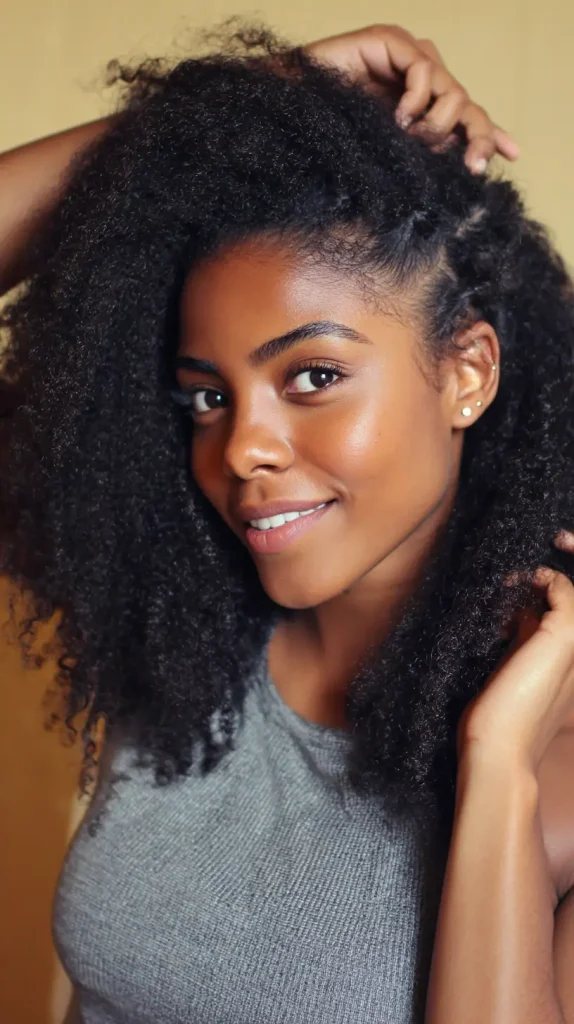
8. Nourish From the Inside Out
Healthy hair starts with a healthy body. Make sure you’re getting enough iron, protein, omega-3s, biotin, and vitamins A, C, and D. Eat leafy greens, eggs, berries, sweet potatoes, and drink plenty of water. Your hair reflects your nutrition more than you think.
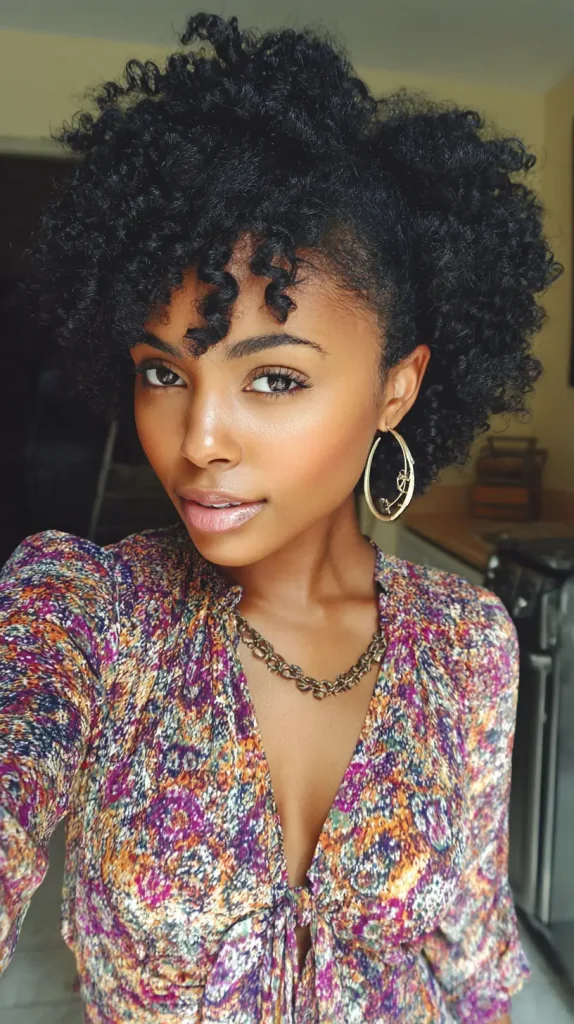
9. Say No to Tight Edges
Tight braids, slick styles, and glued-down wigs can destroy your edges over time. Your edges are delicate—treat them that way. Give them breaks, avoid tension, and apply lightweight oils or growth serums gently to support regrowth.
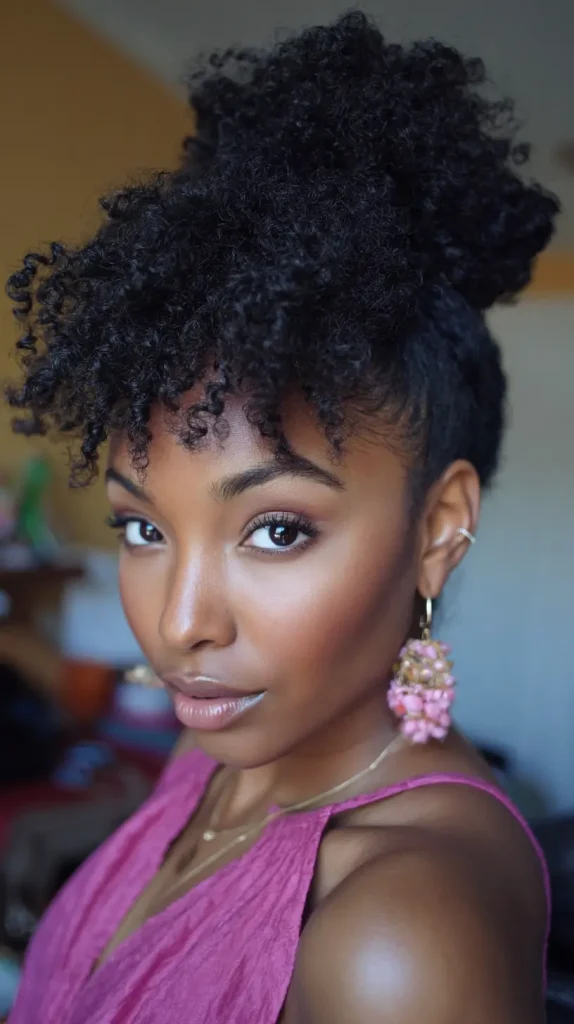
10. Use Satin or Silk to Sleep
Cotton pillowcases suck moisture from your hair and create friction. Protect your strands overnight by wearing a satin or silk bonnet, scarf, or sleeping on a satin pillowcase. It helps reduce breakage, retain moisture, and preserve styles.

11. Clarify Without Stripping
Product buildup can clog the scalp and block growth. Use a clarifying shampoo or apple cider vinegar rinse once a month to deeply clean your scalp. Just make sure to follow up with a deep conditioner to restore balance.
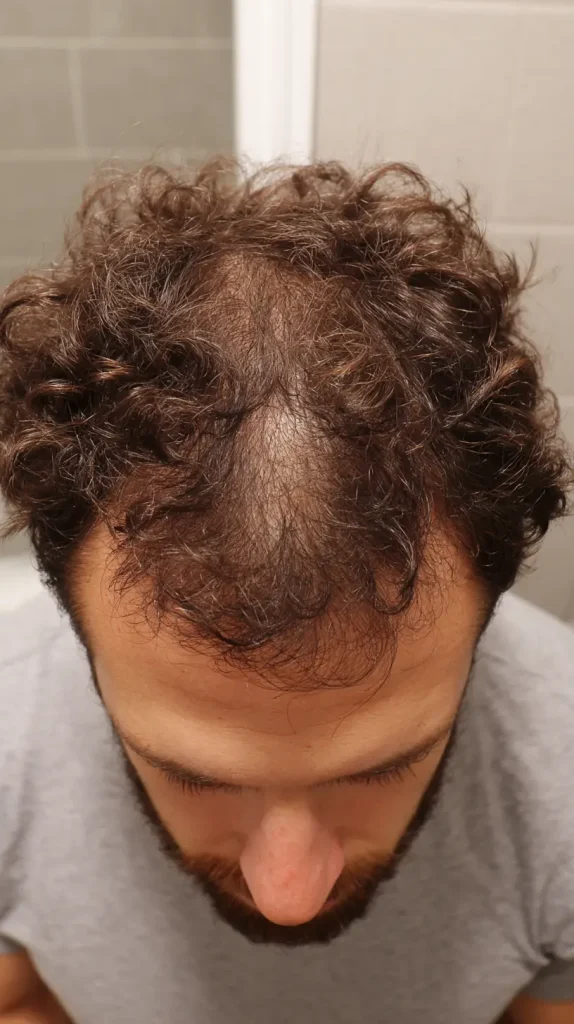
12. Be Gentle During Wash Day
Wash day shouldn’t feel like a battle. Section your hair, cleanse carefully, avoid piling hair on your head, and rinse thoroughly. Turn it into a self-care ritual instead of a dreaded chore—it’s your time to connect with your crown.
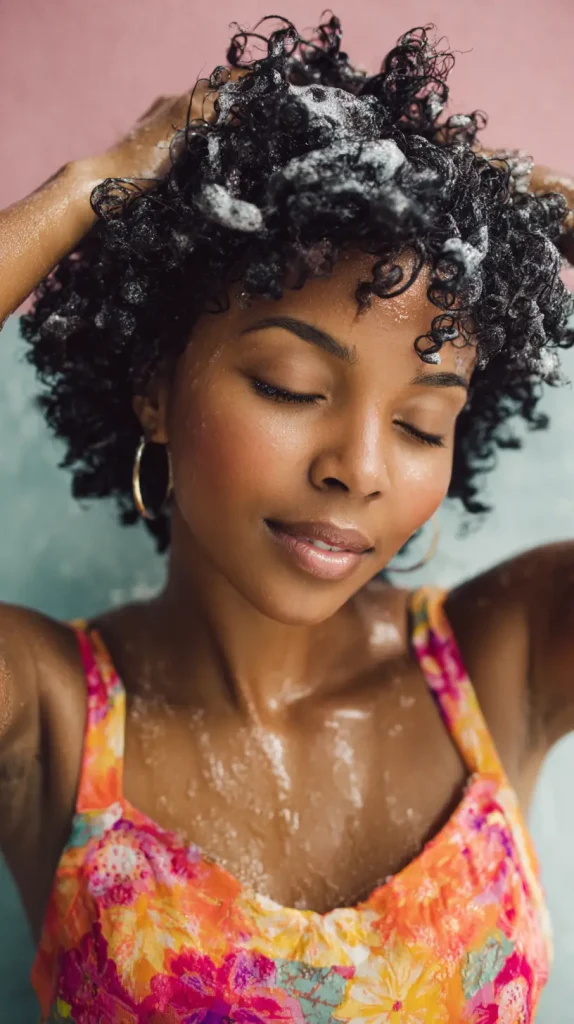
13. Don’t Rely Only on Length
Growth is more than inches. It’s about thickness, health, and how your hair feels. Track your progress with photos, not just a measuring tape. Celebrate less shedding, shinier curls, and fuller twists. Progress shows up in many forms.
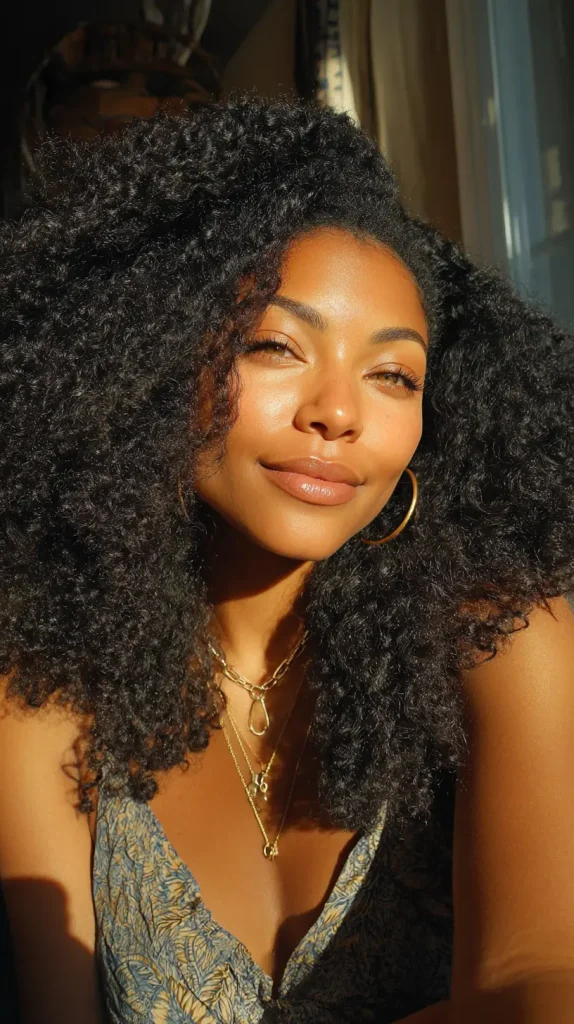
14. Avoid Heat as Much as Possible
Frequent flat ironing or blow drying can weaken the hair shaft, especially if done without protection. Embrace your natural texture more often, use heat protectant when styling, and limit heat tools to once a month (or less) to retain strength and length.

15. Be Patient and Show Yourself Grace
Hair growth takes time. The average rate is half an inch per month, but retention matters more than speed. Stay consistent, treat your hair like something you love (because it is), and don’t compare your journey to anyone else’s. Your hair is unique—and that’s a gift.
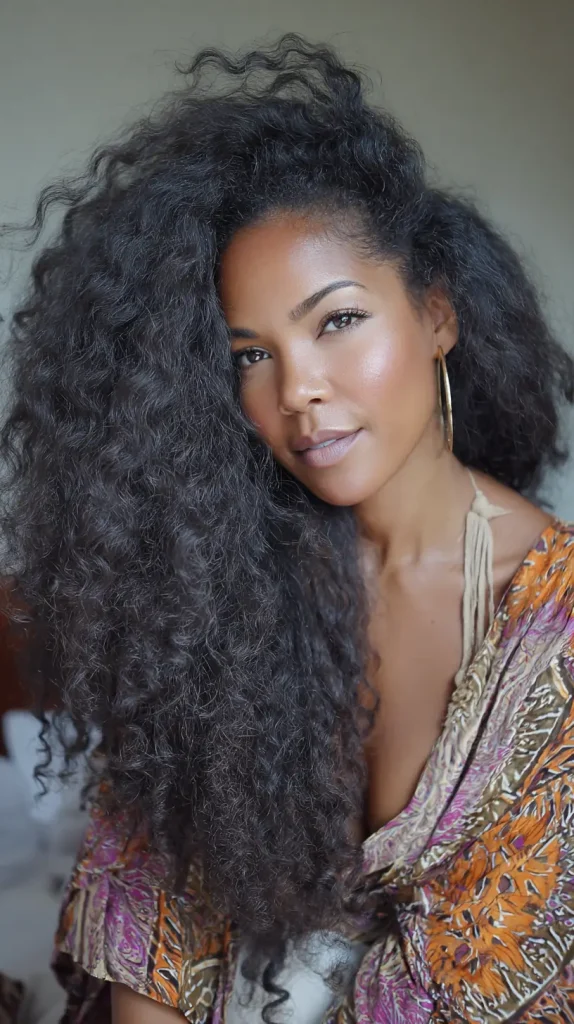
FAQs
How fast does Black hair grow?
Black hair grows at the same rate as any other hair type—about half an inch per month. The challenge is usually length retention, not growth speed. Fragile curls can break easily if not cared for properly.
Can I grow long natural hair without protective styles?
Yes, you can. While protective styles help, they’re not the only way. Low-manipulation routines, moisture, and consistent care can also help you grow and retain healthy hair.
What’s the best oil for hair growth?
Oils like castor, rosemary, peppermint, and jojoba are popular for stimulating the scalp and sealing in moisture. Each person’s scalp reacts differently, so find what works best for you.
Is shrinkage a sign of poor hair health?
Not at all. Shrinkage is a natural feature of healthy, hydrated curls. It means your hair has elasticity—something to be celebrated, not feared.
Should I take supplements for faster growth?
Supplements can help if you’re deficient in certain nutrients, but they aren’t magic pills. Focus on balanced nutrition first, and consult a doctor before starting anything new.
Conclusion
Black hair is a crown—a symbol of resilience, creativity, and beauty. Growing it takes intention, not perfection. These 15 hair growth tips for Black women are more than just steps—they’re small acts of love toward yourself. When you honor your hair’s texture, nurture your scalp, and care for your strands with kindness, growth becomes the natural result of your commitment.


